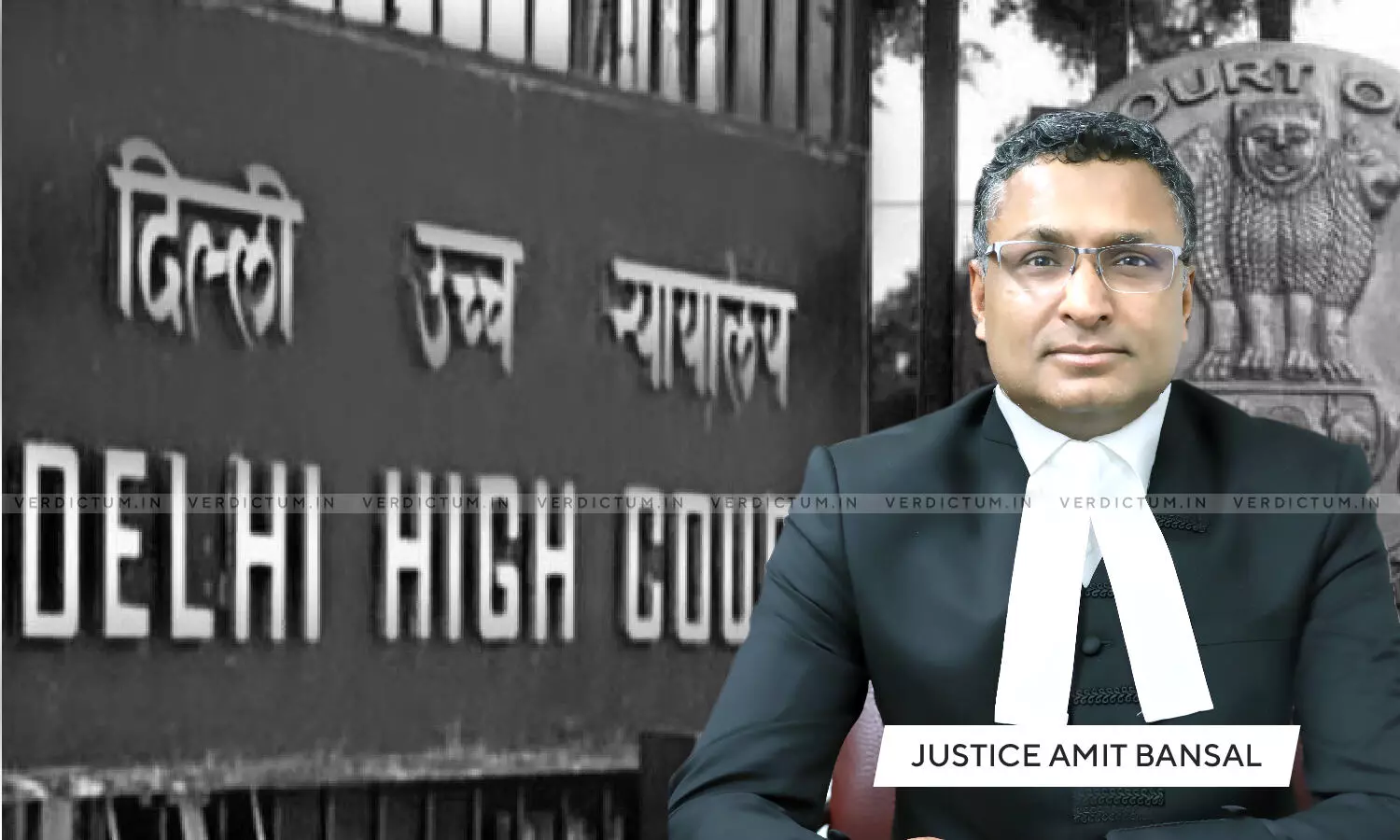
Exhibits Authenticated By Requesting State Can Be Received In Evidence U/S.10 Of Extradition Act: Delhi HC Upholds UP Resident’s Extradition To Oman
 |
|The Delhi High Court has upheld the extradition of the Uttar Pradesh resident to Oman to face murder trial saying that the exhibits authenticated by the Requesting State can be received in evidence under Section 10 of the Extradition Act, 1962.
The aforesaid resident had filed a writ petition challenging his extradition by the Union of India i.e., Requested State to the Sultanate of Oman i.e., Requesting State.
A Single Bench of Justice Amit Bansal said, “Section 10 of the Extradition Act does not envisage that authorities from the Requesting State should depose before the Indian Courts and only then the documents/exhibits submitted by the Requesting State can be admitted in evidence. The mandate of Section 10 of the Extradition Act is absolutely clear that all exhibits and depositions which are authenticated by the Requesting State can be received in evidence.”
Advocate Bahar U. Barqui represented the petitioner while ASG Chetan Sharma represented the respondent.
In this case, the petitioner being a permanent resident of Uttar Pradesh, India was working as a labourer in Bidiyah, the Sultanate of Oman. In 2019, Bidiyah Police Station received a report that one Omani national along with his wife and three minor children was found dead at his home and on preliminary investigation, the authorities in Oman found finger prints and DNA samples of the petitioner along with that of the other Fugitive Criminals (FCs). As per the preliminary investigation, all the FCs were found to have committed offences of premeditated murder felony punishable under Article 302-A of the Penal Code of Oman. Subsequently, they were absconded from Oman to India. Thereafter, an application under Section 34-B of the Extradition Act, 1962 (Extradition Act) was moved and then the arrest warrants were issued against the FCs through CBI Interpol and the petitioner was arrested.
In the meantime, the Requesting State sent a formal request for extradition of all the four FCs along with the original supporting documents and pursuant thereto, vide an order, the Ministry of External Affairs, India made a request under Section 5 of the Extradition Act for an inquiry to be conducted by the Additional Chief Metropolitan Magistrate (ACMM), New Delhi District, Patiala House Courts, New Delhi. Since the remaining FCs could not be apprehended, the inquiry proceeded against the present petitioner. The petitioner made a statement before the ACMM that he did not wish to lead any defence evidence. Accordingly, the ACMM recommended to the respondent the extradition of the petitioner to the Requesting State for facing trial for offence under Article 302-A of the Penal Code of the Requesting State. By way of the petition, the petitioner challenged the order of the ACMM.
The High Court in view of the above facts observed, “There is nothing to suggest that the offence for which the petitioner is charged i.e. murder, is in the nature of a political offence. Additionally, no submissions in this regard have been made on behalf of the petitioner before this Court. … Insofar as the above said requirement is concerned, the offence of murder is punishable in both India and Oman with a punishment of more than one year imprisonment and is therefore an extraditable offence as per the Extradition Treaty. This aspect has not been contested on behalf of the petitioner before this Court.”
The Court further said that despite opportunity granted, no defence evidence was led on behalf of the petitioner before the ACMM and such are the defences that would be open to the petitioner to be taken at the time of trial before the concerned court in the Requesting State.
“For the purposes of the inquiry under the Extradition Act, sufficient material has been placed by the Requesting State so as to make out a prima facie case in support of extradition. … Counsel for the petitioner submits that the authorities from the Requesting State should have appeared before the learned ACMM in India so as to authenticate the aforesaid documents and the documents cannot be read in evidence by CW-1, who was an employee of the Respondent”, also noted the Court.
The Court said that the non-production of defence evidence would cause great prejudice to the petitioner and that the petitioner did not give any details of the documents or the evidence that he sought to rely upon in his defence.
Accordingly, the High Court dismissed the petition and upheld the order of ACMM.
Cause Title- Majibullah Mohammad Haneef v. Union of India (Neutral Citation: 2023:DHC:8421)